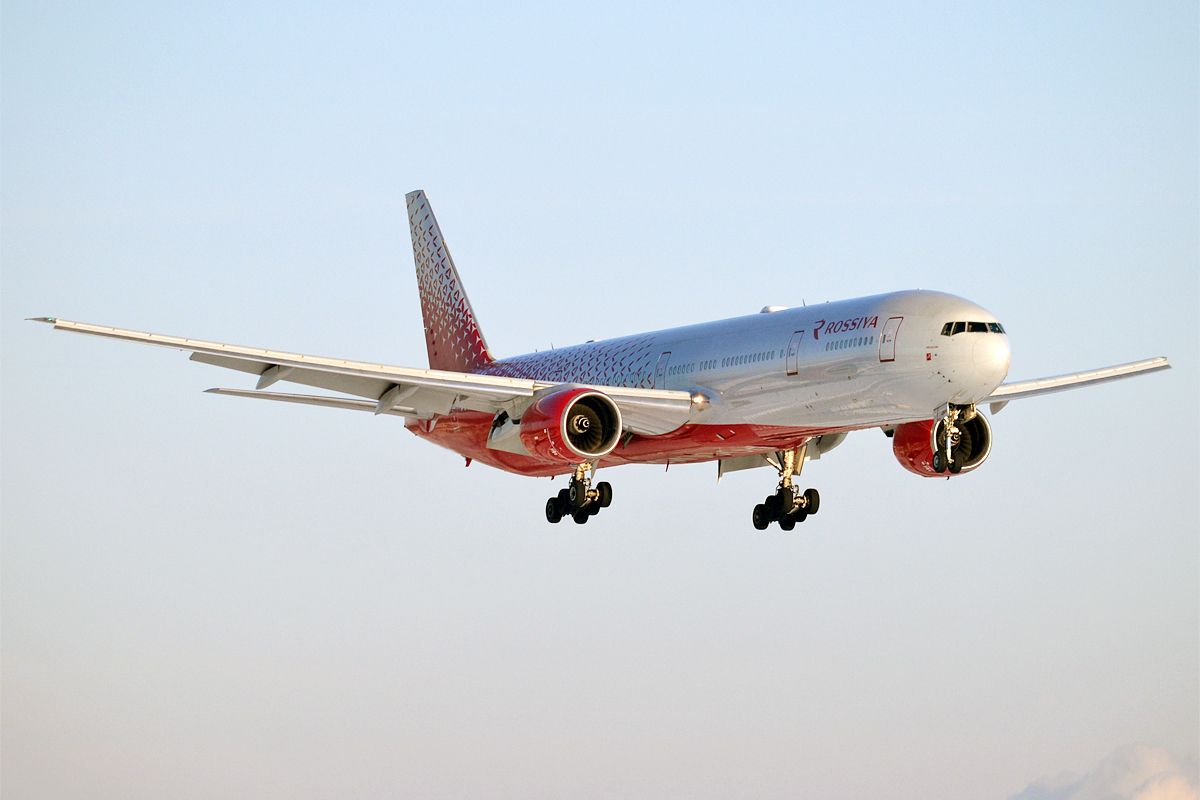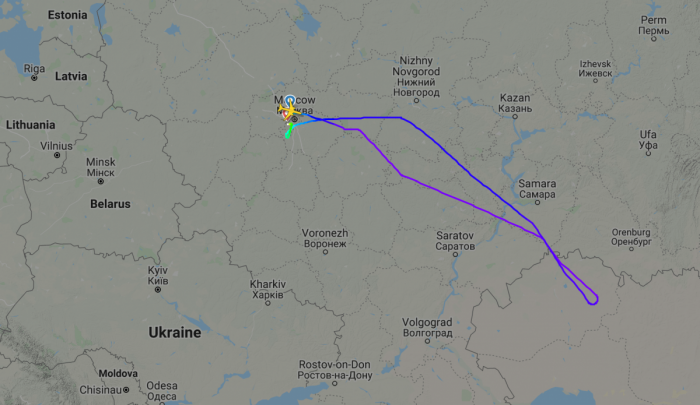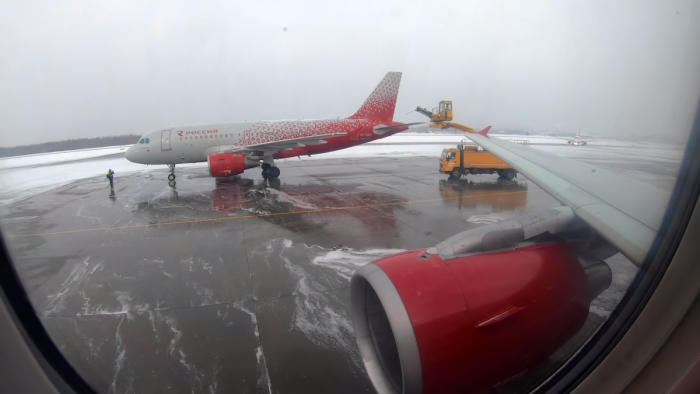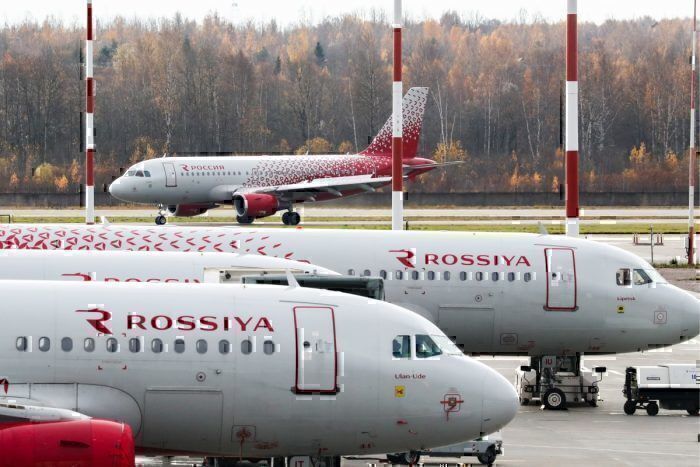On February 28th, a Rossiya Boeing 777-300ER operating on behalf of Aeroflot was about 540nm southeast of Moscow when the crew made the decision to return to Moscow due to a cracked windshield. Following safety procedure, the aircraft descended to a lower altitude before diverting to Moscow's Vnukovo Airport for a safe landing about 3.5 hours after departure.
Flight details
The Aviation Herald reports that aircraft involved in the incident was EI-GEU. This aircraft was performing flight SU6275 from Moscow Sheremetyevo (Russia) to Bangkok (Thailand). Onboard the 777 were 190 passengers and 14 crew, which safely landed three and a half hours after departure, albeit at a different Moscow airport.
With passengers back in Moscow, a replacement Rossiya Boeing 747-400 registration EI-XLF was assigned to resume the journey to Bangkok. The aircraft departed Vnukovo Airport about 3.5 hours after EI-GEU had landed. The 747 reached Bangkok with a delay of 6.5 hours.
As for the damaged 777-300, data from FlightRadar24 indicates that the occurrence aircraft remains on the ground at Moscow's Vnukovo Airport almost a full day after landing there. No future flights have yet been scheduled for the plane.
Rossiya's fleet
According to Airfleets, Rossiya has a fleet of 57 aircraft. Its narrowbody fleet is made up of Airbus A319s, A320s as well as Boeing 737-800s. Its widebody, long-haul fleet consists of eight Boeing 747-400s as well as 10 Boeing 777-300s.
With its fleet and number of passengers handled, Rossiya is Russia's third-largest airline.
The Rossiya aircraft was flying on behalf of Aeroflot as the two airlines are part of the same airline group - the Aeroflot Group. In fact, the group owns 75% of Rossiya.
- Rossiya (absorbed in 2010)
- Aurora (absorbed in 2011)
- Pobeda (launched in Dec-2014)
- JSC Sherotel
- ALT Rejsebureau A/S
- Aerflot-Finance LLC
- CJSC AeroMar Limited
What causes a cracked windshield?
There are a number of reasons as to why aircraft windshields may crack. Designed to withstand huge variations in temperature and pressure, windshields are made of several layers of glass that are designed to be extra durable. The glass should be able to withstand the impact of a bird strike.
However, the windshield is not indestructible. In fact, windshields may suffer cracks more often than you might think. In fact, a common cause of aircraft windshield cracks are actually severe hailstorms.
A windshield may also crack due to incorrect heating. This occurs with modern aircraft that have electronically heated windows. The glass sometimes cracks due to a short-circuit. The age of the aircraft and the number of flight cycles can also be a factor due to stress levels put on the glass over a long period of time.
Conclusion
It's great to see that passengers were able to resume their journey within the same day rather than wait a 24-hour period. Hopefully, Rossiya's 777 will be back in the air sooner than later.
Have you ever flown with Rossiya before? Let us know how your experience was by leaving a comment!
Simple Flying has contacted Rossiya for an official statement or comment. However, at the time of publishing, no response has been received.




